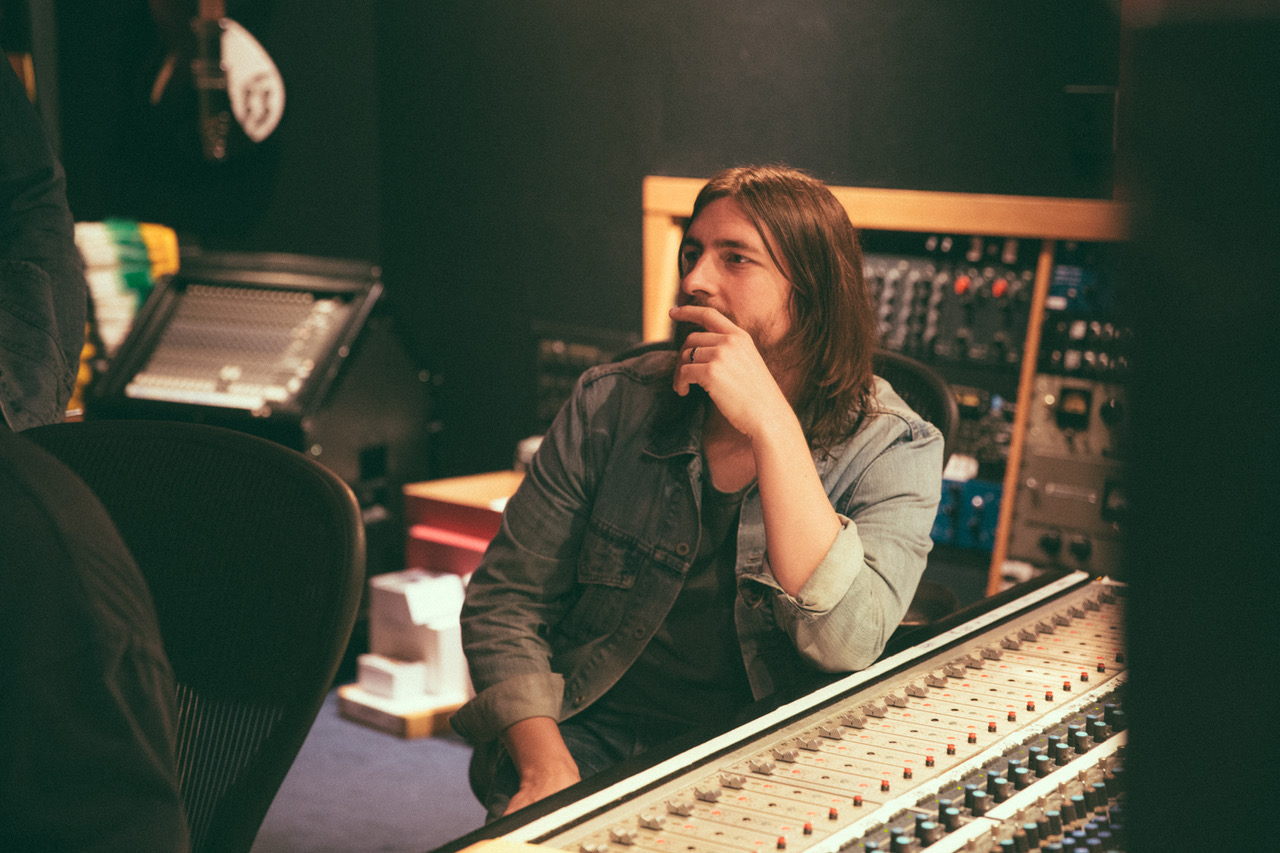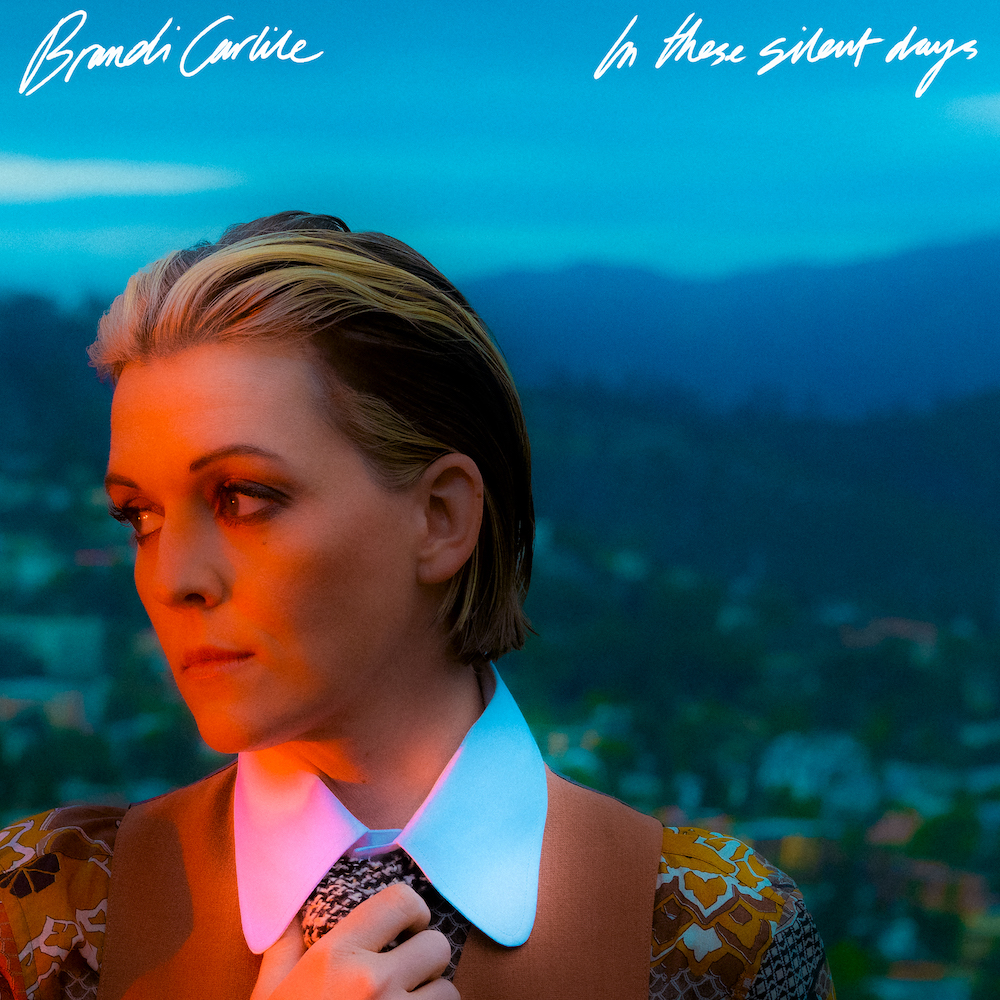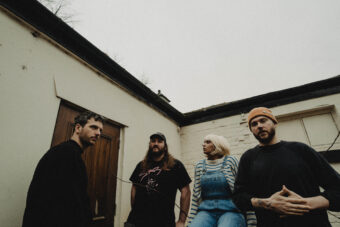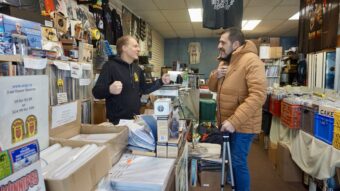Flip over to the back of some of the very best records made in America across the last decade, and you’ll probably notice a familiar phrase printed somewhere on the cover.
“Produced by Dave Cobb.”
Ever since moving back to the South from Los Angeles in 2011, the Georgia native has overseen a staggering array of era-defining, critically and commercially adored projects: Southeastern by Jason Isbell. Metamodern Sounds in Country Music by Sturgill Simpson. By the Way I Forgive You by Brandi Carlile. Chris Stapleton’s Traveller. The Tree of Forgiveness by John Prine. The Highwomen. And on, and on, and on.
Many of these projects were cooked up and completed at the iconic RCA Studios A not too far off Broadway in Nashville. Founded by country legend Chet Atkins in 1964, the gymnasium-sized room is an institution in a literal sense (in 2015, the U.S. government added it to the National Register of Historic Places). Cobb is the studio’s current steward and relishes all the historic and technical flourishes the space provides.
“You almost need to put a tie on and be on your best behavior because so many greats have been there before we ever even thought about making music. And you feel that,” he says over the phone. “Sonically, it was designed at a time when the music industry was really healthy. You could be a dreamer and there’s a lot of opportunity. You feel this hope and this excitement. You feel like there were more parties in there than there were sessions.”
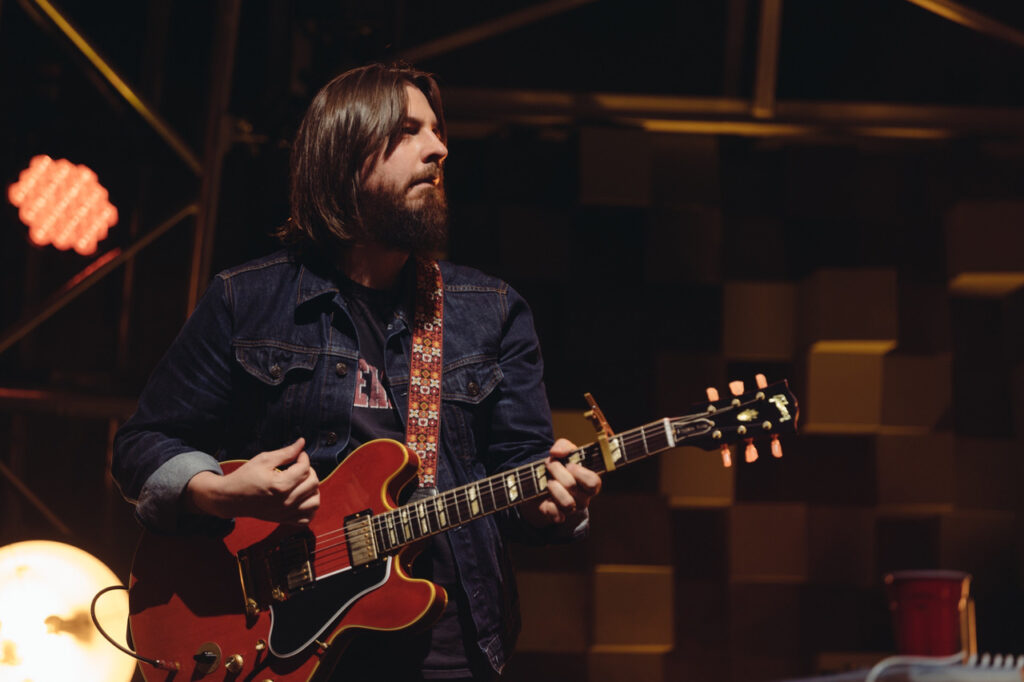
Cobb was born on July 9, 1974, in Savannah, Ga. He started playing drums at age four en route to performing with his family in the local church band. His professional career began in earnest in the 1990s, when he played on a few different recording sessions before joining the Tender Idols. The group released three records – one of which Cobb produced – before things went belly-up. After the group called it quits, Cobb moved from Atlanta to Los Angeles, where he became close friends with Shooter Jennings. In 2005, he produced Jennings’ debut album, Put the “O” Back in Country, and has been a permanent fixture behind a mixing console ever since.
Different producers have differing philosophies on the best way to make a record. As a musician himself, Cobb’s vision is straightforward: get the vocal first, and get it live.
“Honestly, it has probably scared a lot of people through the years,” he says. “To me, people listen to the vocal number one, so why not make the vocal the star and work everything else around that? And if the vocal’s not happening, it’s probably because the arrangement isn’t happening, it’s the wrong key for the singer, or it’s too fast.”
There’s a romantic component to working this way which harkens back to a simpler time of record-making. “Seeing pictures of Elvis in the studio, or Ray Charles, or Otis Redding, or any of these guys, that’s the way they’d done their thing,” he says. “I loved those records and wanted to emulate that early on.”
But there’s also a practical method to the madness and a little bit of psychology. “I noticed that when you’re tracking with the band, it just seems like the singer sings better,” Cobb notes. “I think it’s because the whole focus of everything is not on just the singer. It’s on getting the whole thing together. When they sing loud, the band plays loud. When they sing quietly, the band plays quietly. It’s an interaction you can’t get the other way around. I find it a lot harder to find the emotion for everybody.”
Recently, I had the opportunity to talk with Cobb about some of his more acclaimed projects, what he learned about vocal harmonies from Barry Gibb, and how he bullshitted his way into arranging strings for Chris Cornell’s second solo album.
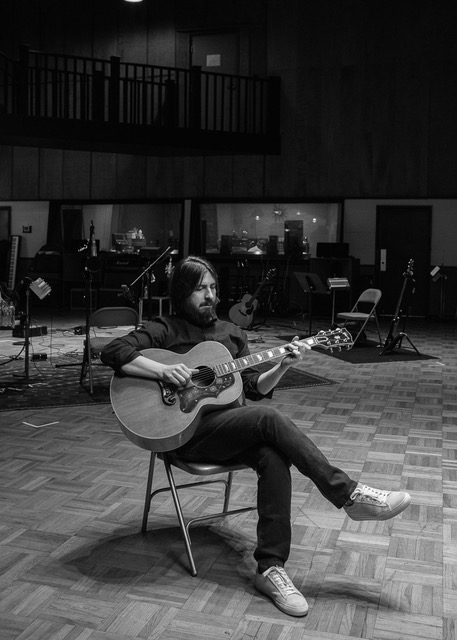
SPIN: How did you come to take over Studio A in Nashville?
Dave Cobb: It happened by accident. Chris Stapleton and I were going to make Traveller and he thought it’d be good because of all the history. We’re both massive fans of the work that was done in that room. It was potentially going to be torn down at that point, so we really wanted to get in there and get a chance to enjoy the space and feel whatever was getting put off by the energy in the studio.
There are a lot of projects I’d like to ask you about, but how did you wind up arranging strings on Chris Cornell’s 2007 solo album Carry On?
Well, it was interesting because he’s obviously one of the best singers of all time. I was a fan. I got a call from my friend, this guy Todd Parker. He was engineering that record and Steve Lillywhite was the producer. He called me and said, ‘Hey, do you know anybody that does horn arrangement?’ I’m like, ‘Yeah, I do horn arrangement.’ I’d never done a horn arrangement in my life. At all. Ever. So, he’s like, ‘Well come on by!’ So, I go by the studio, and I hear the song [‘Safe and Sound’] and I start singing the melody. Chris Cornell’s there and he is like, ‘Great. Done. You’re hired.’
That’s incredible.
I remember seeing him in person and thinking, ‘He’s one of the most beautiful people you’ve ever seen.’ He was like an alien. He was so perfect in every way, just cool as hell and just a great vibe. Anyway, I go off and I have a friend of mine that can transcribe music. I sing every note of the horn arrangement to that guy. We hire these guys called the Texacali Horns, an incredible horn section in L.A. And I show up in front of a podium reading music, which … I don’t read music at all. I’m acting like I’m reading the music. I know the lines because I’d sing them. I’m the guy who wrote it down. So I’m acting like I’m conducting in front of Chris Cornell and Steve Lillywhite, who’s one of my heroes. It was such a great experience. I was like, ‘You want to change anything?’ He said, ‘Nope.’ I was like, ‘Well, good. Because I don’t know how to write it out.’ He couldn’t have been nicer. He was just a really great human being.
That’s just some excellent bullshit you pulled there, my friend. Way to go.
Oh, man. Being a producer is like being a professional liar. You call yourself one and then you are, I guess.
What was it like working with Barry Gibb and then Slash on back-to-back projects recently? I can hardly imagine two more diametrically opposed artists from a stylistic standpoint. Was that a trip?
Not really, because I adored both. The Bee Gees’ early records were and are some of my favorite records of all time. So, to get a call from him, I was freaked out. He couldn’t have been nicer. He was such a pleasure to work with. I look at those records and the way they made those records, as the encyclopedia on how to make a record. Those guys laid the foundation for what we get to do today. We just got along on so many levels as humans.
And Slash, I started playing guitar at 13 in 1987 when Appetite For Destruction came out, so that’s always been part of my vocabulary. Watching Slash playing, you knew it was Slash playing. But then seeing him in person … he’s even better than I ever thought he was. One to 10, I thought he was a 12. And then he’s [actually] a 20 as a player and even a better human. I was a rock kid primarily but also grew up in a Pentecostal church with gospel music. All that stuff makes sense. It’s all from the same place.
Did you learn any tips while working with Gibb?
Do you know what I took away from Barry Gibb? Listening. The way he listens. He’s almost in another dimension. It’s like he’s removed himself from the room and he is just the ether on this other place. How intently he listens and how he feels music. Obviously, you have to be that way to write those absolutely mind-blowing lyrics, not to mention his sense of melody. To see that in real life was pretty magical.
What was it like making Traveller, and were you surprised at how big it became?
I remember Chris’ wife Morgane saying, ‘If we could just sell, like, 22,000 records…’ I don’t know where that number came from, but somehow that was the goal. The label gave us permission to go record some demos and six, seven, or eight days later, we came out with Traveller.
One of my favorite songs from Traveller is ‘Parachute.’ What was the vibe like when you recorded that one?
I think Chris maybe had that one pretty formed before we ever started recording. It’s very interesting with Chris and his band and Morgane. Sometimes you don’t have to talk. They just start playing and we all pick up to it and it just becomes this thing. It’s not like we sit and go, ‘Okay, we’re going to make this one really fast, or we’re going to make this really slow.’ It’s almost like we never have words for how they happen. We’re all playing together, and it just becomes the thing.
His process is very different than a lot of people’s. A lot of times we’ll goof off all day and order food and laugh and joke and then record at 9 p.m. after we wasted a lot of time doing nothing, and then we’ll get three songs. He’s got this really great sense of when to do things and what the right time is. Usually, the right time is the nighttime, like Ray Charles said.
What are some memories you have of making Sturgill Simpson’s Metamodern Sounds in Country Music?
Sturgill and I were really good buddies and hung out a lot. It was pretty effortless. Making Metamodern was a blast because I don’t think it was even meant to be a record. It’s been a while, but from memory, it was about four days of just going into the studio and recording. There was the intent of having it mixed by somebody else and I think I had just done really quick rough balances of it. Everyone was in the room together. There was no isolation. He wasn’t singing with headphones. I think that record is documenting that time and space, and we were all having a good time at that time and space. I could hear the joy.
Was he using studio musicians? I remember him talking about using Hargus ‘Pig’ Robbins on keyboards and some of those old-school Nashville session guys.
Yeah. I brought ‘Pig’ up to him and he was like, ‘Yeah, bring him in.’ We’re all super-reverent of the people who made our favorite records, so it was really cool to have ‘Pig’ sitting right there.
This month marks the 10-year anniversary of Jason Isbell’s Southeastern. What do you remember about that record and how do you feel about it all these years later?
I was a huge fan of Jason. I was living in L.A. and I heard his Drive-By Truckers song ‘Outfit,’ and it just made me so homesick for the Southeast where I’m from. That really got me. Somebody else was going to produce [Southeastern], but then I got a call maybe two weeks beforehand that it was a go. It was a magical time because he was in such a good head space. He’d just gotten out of rehab. He was very focused, very healthy, and in a great mood. Songs like ‘Elephant’ and ‘Cover Me Up’ – you’re not prepared to hear lyrics like that. His strength with a pen is unparalleled in so many ways.
As we’re doing this, he’s also getting fitted for his wedding and there’s a million moving pieces going. I asked him, ‘How do you handle all this at one time while making a record?’ He said, ‘There was one time when I thought I could control everything, and then one day I realized I couldn’t. So, I just got to sit back and let everything ease out.’
What advice would you give to someone aspiring to be a good producer? Or a good musician?
How to be a good producer? Lie, because I don’t think I’ve ever had to show anybody my producer card, you know what I mean? How to be a great musician? I think that starts with listening to records. And then practice. A lot of practice and a lot of time by yourself. All your friends are out hanging out? You’ve got to be inside the woodshed. That’s a million-hour rule. Not even the 10,000-hour rule.
What can people do to become more creative?
I think you kind of just BS your way so far. And then sometimes, somehow, something works and somebody believes you know what you’re talking about. I couldn’t answer that question. Creatives are all crazy. Speaking about myself, I think we’re all a little out there and I think you’ve got to be not scared to fail because there’s a lot of failure in coming up. It could break your will pretty early on if you just listen to other people tell you how to do things. It can break your will if somebody’s saying an idea you have is a bad idea, and then 10 years later, it’s not. You have to put some pretty thick walls up and not be scared to fail when you let them down. Just keep trucking, because it’s music. It’s really not the smartest career, in a lot of ways.

